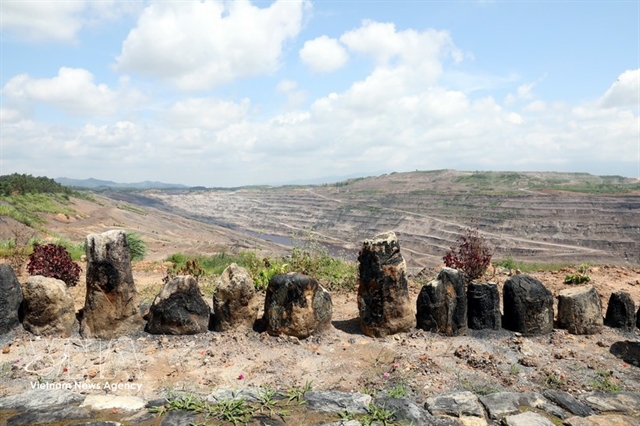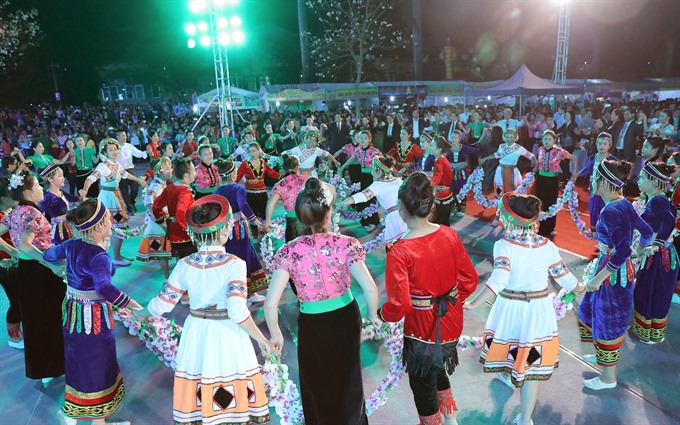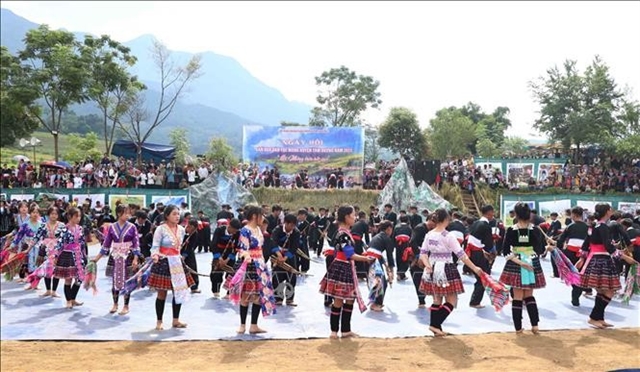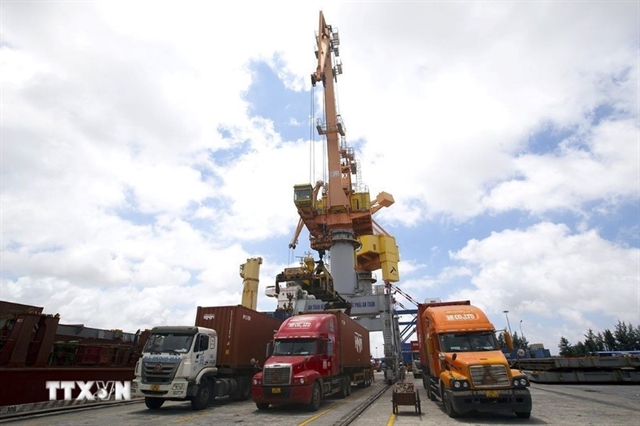 Society
Society

The northwestern province of Điện Biên should capitalise on its advantages to develop tourism, National Assembly Chairwoman Nguyễn Thị Kim Ngân told provincial officials yesterday.
 |
| Ethnic groups in the northern province of Điện Biên perform the traditional dances of xoè on the occassion of the Ban Flower Festival which opened on Sunday.—VNA/VNS Photo Trọng Đức |
ĐIỆN BIÊN – The northwestern province of Điện Biên should capitalise on its advantages to develop tourism, National Assembly Chairwoman Nguyễn Thị Kim Ngân told provincial officials yesterday.
Lauding local socio-economic achievements, the top legislator, who is visiting some northwestern provinces, told Điện Biên to use the special national relic site of the Điện Biên Phủ Victory for tourism development.
As a province with 19 ethnic groups, it can offer diverse cultures for tourists to explore, she said.
The province should plant more ban trees, whose flowers are considered a symbol of the northwest of Việt Nam, to improve local landscapes and create a tourist attraction.
Chairwoman Ngân also asked the province to co-ordinate with other localities and businesses to attract tourists while calling for investment in infrastructure development to boost tourism.
Stressing that Điện Biên was still a poor locality with a high rate of poor households, Ngân instructed the provincial authorities to strive to tap its potential and to improve poverty reduction and hunger eradication programmes.
Although the province does not have any hydropower plants, it still needs to protect and use watershed forests. Diverse soil and climate conditions are also favourable for it to expand forestry and organic agriculture, including the cultivation of specialty rice varieties, she added.
Reporting on the local situation, Secretary of the provincial Party Committee Trần Văn Sơn said Điện Biên has recorded good progress in agricultural and forestry production.
The cultivation of perennial industrial trees like coffee, rubber, and tea has been expanded in tandem with processing and purchasing activities. There are about 5,170ha of rubber, 4,050ha of coffee and 60ha of tea in the province.
Provincial authorities have also worked to promote agricultural restructuring and succeeded in attracting investments in specialty rice farming, processing and distribution, industrial livestock farming, and fruit cultivation, he noted.-VNS




